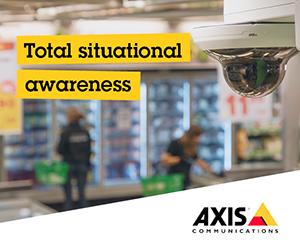web and mobile fraud
European Action on Cyber-crime
An initiative has been launched to further strengthen the fight against cyber-crime in the European Union and beyond.
Hosted at the European Cyber Crime Centre (EC3) at Europol, the Joint Cyber Crime Action Task Force (J-CAT), which is being piloted for six months, will co-ordinate international investigations with partners working side-by-side to take action against key threats and top targets, such as underground forums and malware, and including banking Trojans.
The J-CAT will be led by Andy Archibald, deputy director of the National Cyber Crime Unit from the UK’s National Crime Agency (NCA).
It was initiated by Europol’s EC3, the EU Cyber Crime Task Force, the FBI and the NCA and comprises a team composed of cyber liaison officers from committed and closely involved Member States, non-EU law enforcement partners and EC3.
Key contributors to the intelligence pool will be the EU Member States via EC3 as well as other law enforcement co-operation partners.
Thus far, Austria, Canada, Germany, France, Italy, the Netherlands, Spain, the UK and the US are part of the J-CAT. Australia and Colombia have also committed to the initiative.
Troels Oerting, head of the European Cyber Crime Centre, stated: “This is a good day for those fighting cyber crime in Europe and beyond. For the first time in modern Police history, a multi-lateral permanent cyber-crime task force has been established in Europe to co-ordinate investigations against top cyber criminal networks. The Joint Cyber Crime Action Taskforce will operate from secure offices in Europol’s headquarters assisted by experts and analysts from the European Cyber Crime Centre.”
Oerting added: “The aim is not purely strategic, but also very operational. The goal is to prevent cyber-crime, to disrupt it, catch crooks and seize their illegal profits. This is a first step in a long road towards an open, transparent, free but also safe Internet. The goal cannot be reached by law enforcement alone, but will require a consolidated effort from many stakeholders in our global village. The J-CAT will do its part of the necessary ‘heavy-lifting’. That work has already started. I’m confident we will see practical and tangible results very soon.”
Andy Archibald said: “There are many challenges faced by law enforcement agencies with regards to cyber criminals and cyber attacks. This is why there needs to be a truly holistic and collaborative approach taken when tackling them. The J-CAT will bring together a coalition of countries across Europe and beyond to co-ordinate the operational response to the common current and emerging global cyber threats faced by J-CAT members.”
In conclusion, Archibald stressed: “This is a unique opportunity for international law enforcement agencies to collectively share our knowledge aimed at defending against cyber-related attacks. The UK’s National Crime Agency is proud to be a founding member.”
Rapid rise in major international cases
EC3 is involved in cross-border cyber-crime investigations and has seen a rapid increase in major international cases. The J-CAT aims to add significant value to international law enforcement co-operation, and to maximise the effectiveness of joint and co-ordinated actions.
Cyber-crime affects citizens, businesses and Governments regardless of their national borders or jurisdictions. Police forces across the world face similar crimes and criminal targets. For that reason, and more so than is the case with any other type of crime, it’s crucial to share intelligence and align priorities.
The J-CAT affords the possibility of addressing the most impactful crimes affecting many states in a joint, well-concerted manner and with the assistance of EC3.
The J-CAT will gather data on specific criminal themes from national repositories and from relevant Government and private partners, as well as transforming this raw data into actionable intelligence and proposing targets and networks for investigations. It will cover all relevant areas including malware coding, testing, distribution, Botnets, Crime-as-a-Service, online fraud, intrusion and similar top-end crimes.
In addition, it will organise dedicated consultation meetings with key actors in the private sector and the Computer Emergency Response Teams for the EU institutions, bodies and agencies (CERT-EU) to obtain their input on cyber-crime threats that affect them and, indeed, society in general.





